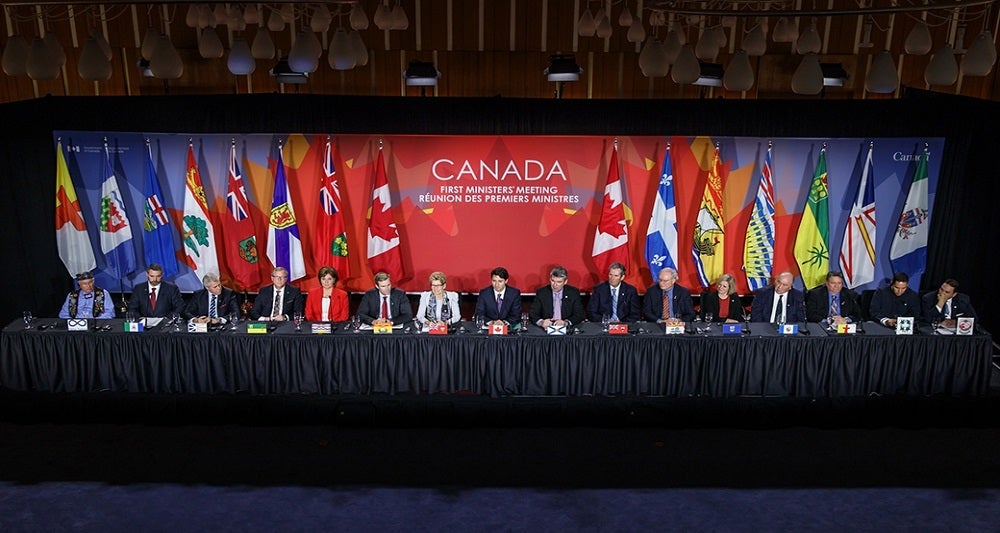In March 2016, Canada's First Ministers agreed to develop a pan-Canadian framework to achieve Canada's international commitments in the Paris Agreement. Through this process, the federal and provincial governments are seeking to implement policies in support of meeting or exceeding Canada's 2030 target of a 30% reduction below 2005 levels of emissions and transitioning Canada to a climate-resilient, low-carbon economy.
Four working groups, comprised of federal, provincial, and territorial officials, were established to develop options in the following areas:
- How and where to reduce emissions
- Ideas for new innovation, technology and job creation
- Pricing carbon pollution
- Preparing for and responding to the impacts of climate change
The working groups considered input from all Canadians. They met with Indigenous peoples and key stakeholders and also reviewed ideas and comments submitted online.
Options presented in the working group reports were discussed at meetings of the Ministers of the Environment and the Ministers of Innovation and Economic Development held in October and November 2016. This led to the proposal of the basis for a Pan-Canadian Framework on Clean Growth and Climate Change, and following its consideration by the First Ministers, the Framework was released on December 9th, 2016.

Two IC3 members provided their take on the Framework:
Simon Dalby articulated that "while it is encouraging that the Federal government is formulating a pan-Canadian climate policy, there is little in it that suggests Canadian politicians have yet grasped either how fundamental current planetary changes actually are, or the urgency of cutting emissions while focusing on building a post-carbon fueled economy. Much more intelligent planning is needed, forward looking thinking that recognises that the age of fossil carbon is drawing to a close and that Canadians need to be part of the solution to climate change rather than reluctant latecomers to the new economy."
On the other hand, Daniel Henstra expressed the fact that "it is encouraging that the recommendations of the Adaptation Working Group emphasize climate resilience. This risk-based approach involves collaboration to anticipate, prevent, respond to, and recover from climate-related stresses like extreme weather. It is also good to see that sustained, long-term funding for adaptation has been highlighted as a priority."
Looking ahead, the Framework states that annual reports to the First Ministers will enable governments to take stock of progress and give direction to sustain and enhance efforts, and that actions and performance will be reported on publicly in a way that is transparent and accountable to Canadians.